Delivering health services to refugees fleeing Sudan
Safe from conflict and malaria
January 9, 2024
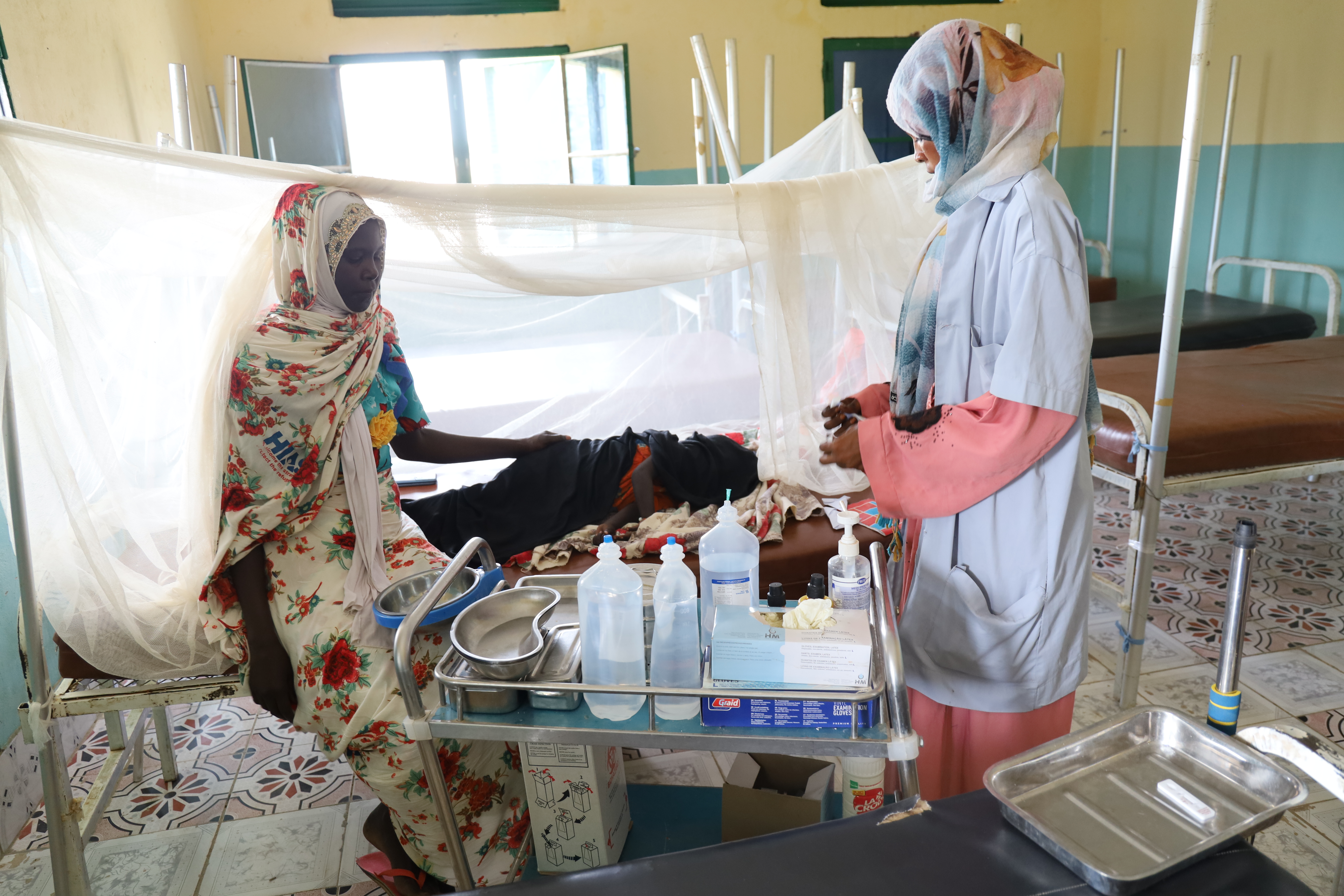
The conflict in Sudan threatens to set back progress against malaria in the country and the region. UNDP is working with partners to ensure refugees can access prevention methods and treatement.
For about six months, Khamissa Issakh Mahamat, aged 30, has been in Kouchagine-Moura, a refugee camp near Abéché and Chad’s border with Sudan. She fled recent fighting in Sudan with her two daughters and a son.
Mahamat and her children arrived in Chad during the rainy season, when the transmission of malaria, a potentially fatal disease spread by mosquitoes, is the highest. Upon arriving, they received insecticide-treated bed nets, which prevent mosquito bites to help stop the spread of malaria.
Nevertheless, Mahamat’s daughter contracted malaria.
“She hadn't vomited, but she had fever and was crying constantly, so I brought her to the hospital in Kouchagine-Moura,” Mahamat recalled. “They took her temperature. They told me that she was very sick. They did some tests and gave her medicine.”
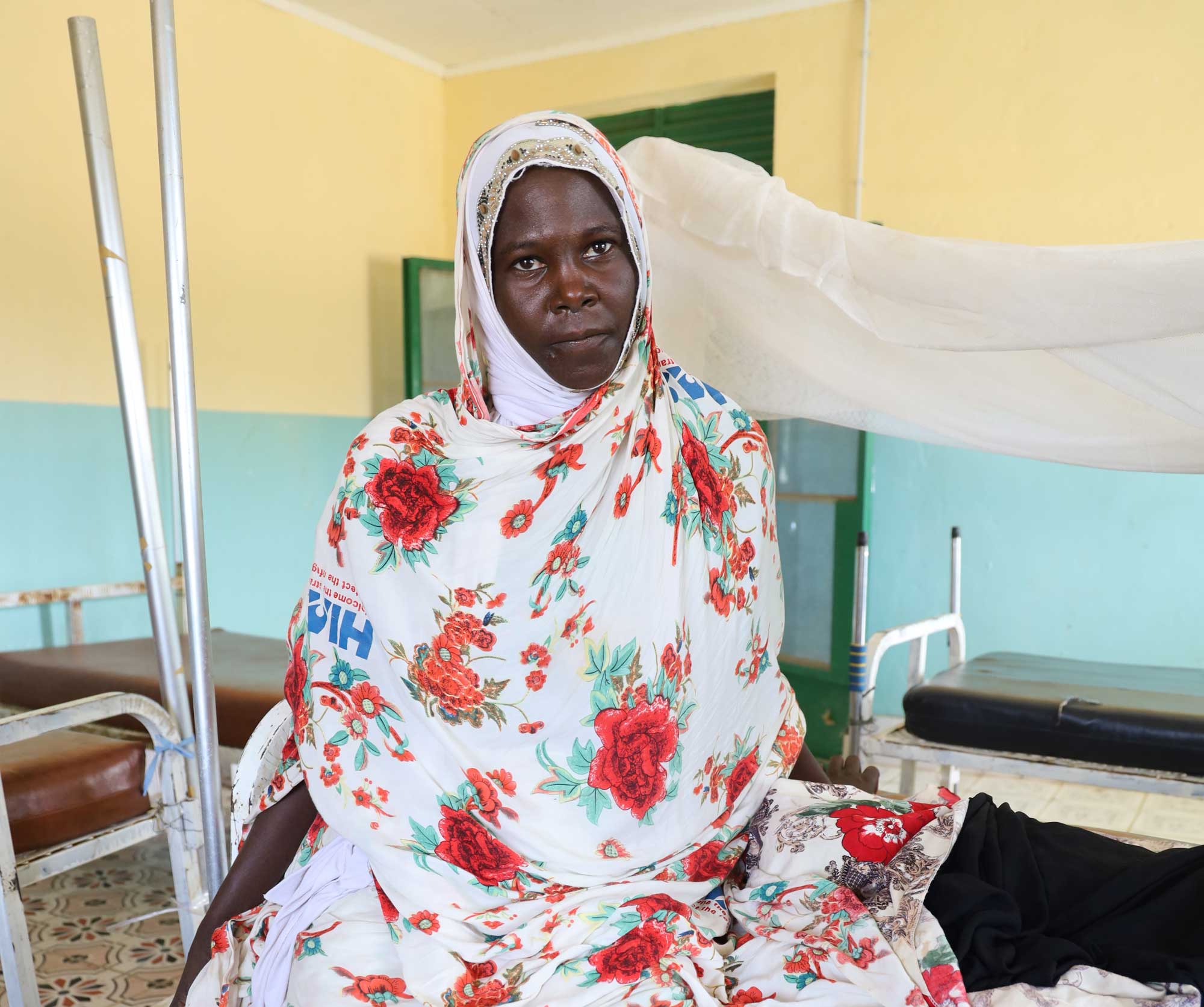
Before accessing malaria treatment for her daughter in Chad, Khamissa Issakh Mahamat fled Sudan with three children. She lost two other children, while her ex-husband remains missing.
For Arafa Adoum Hassan, who works at the same health centre, more health education is needed to ensure people seek malaria services promptly.
“Sometimes locals and refugees arriving here do not know about the importance of hospital treatment for severe malaria. When they arrive, we raise awareness," Hassan said. “When we educate one person, that person may help educate a hundred others.”
Malaria disproportionately affects the African region and children below five years. In 2022, Chad had 1.7 million confirmed cases and 2,700 reported deaths from malaria. The country ranks tenth based on the estimated number of malaria deaths.
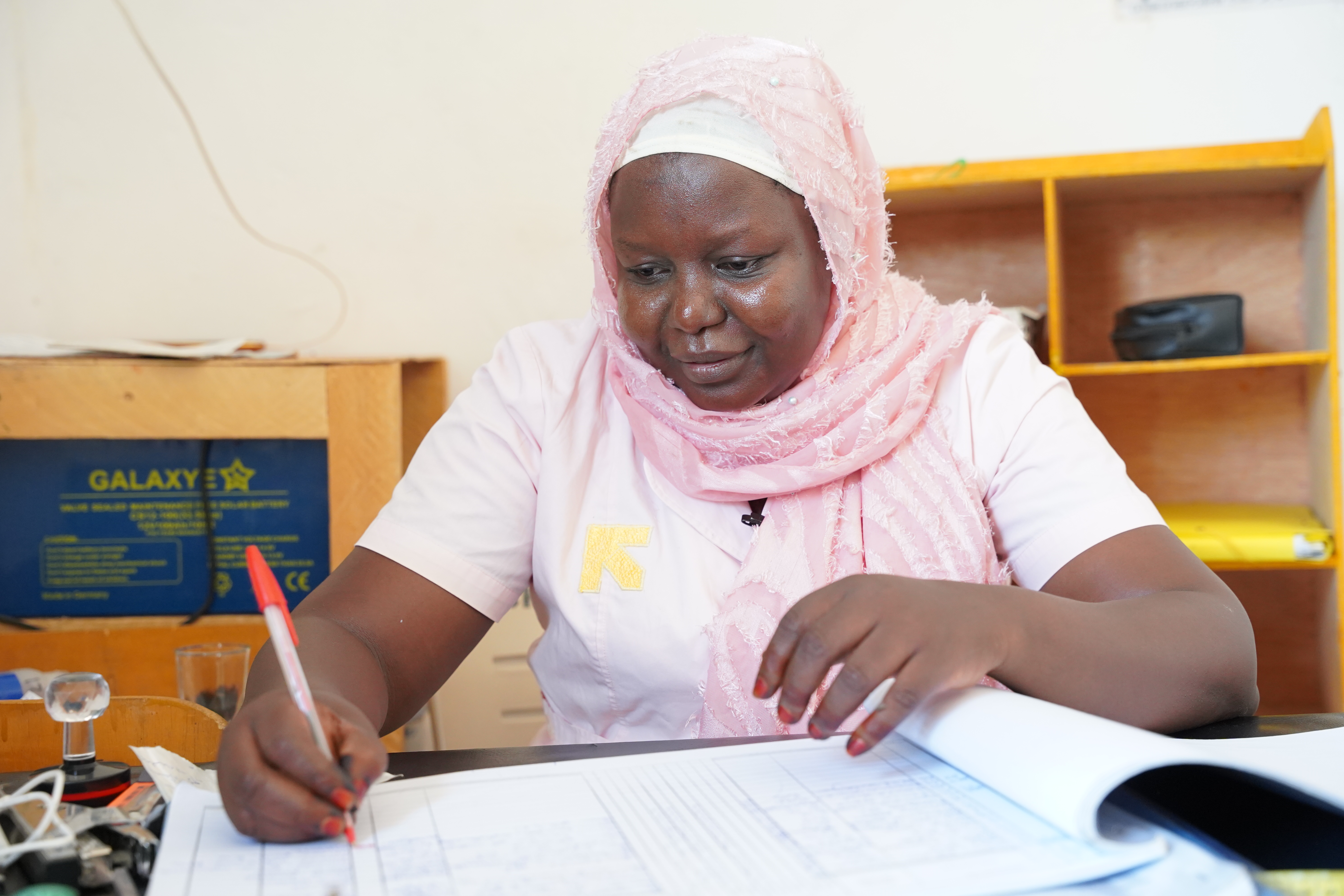
Arafa Adoum Hassan works at the Kouchagine-Moura health centre, which provides healthcare to local residents and refugees.
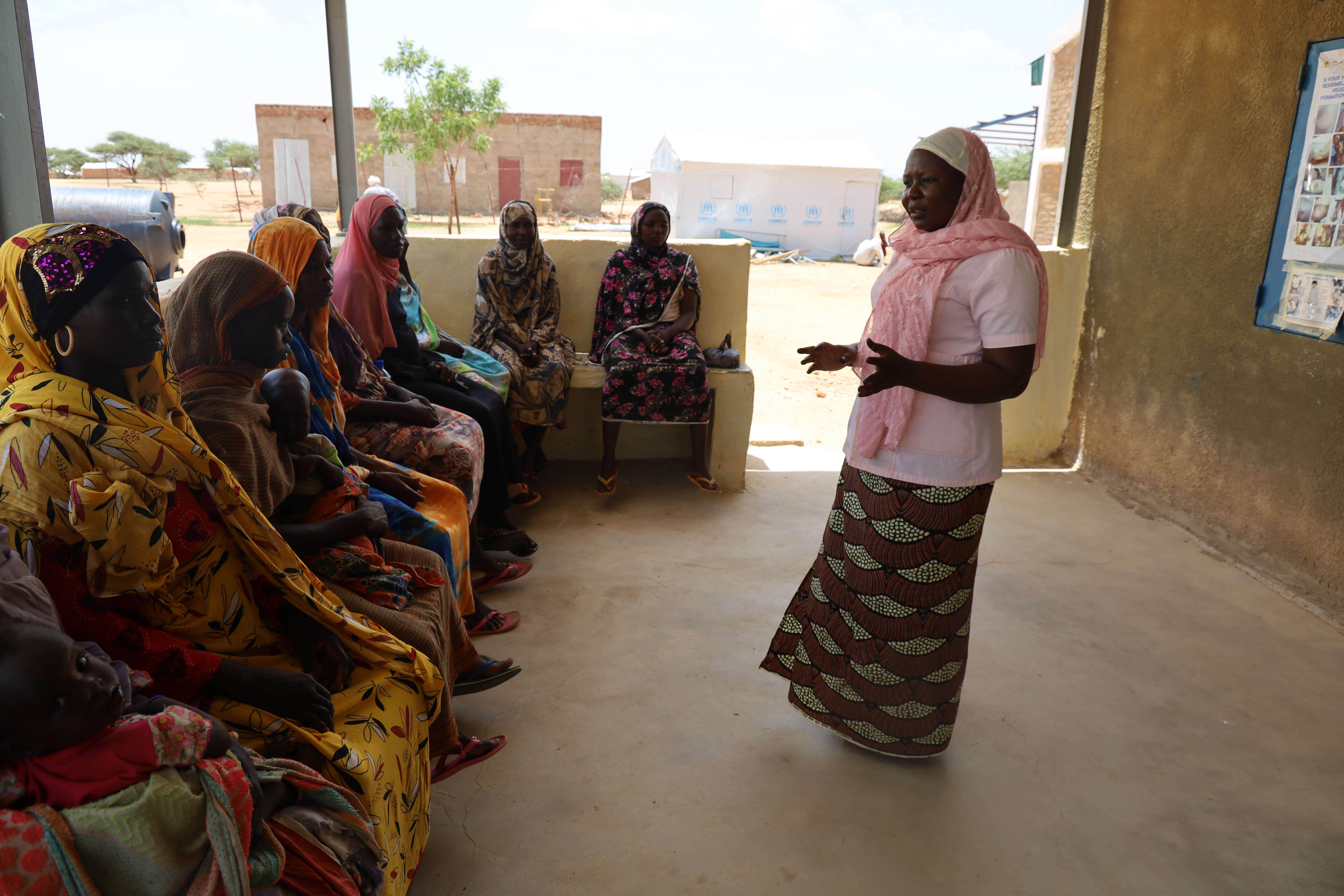
Arafa Adoum Hassan normally works as a midwife but is currently managing Kouchagine-Moura health centre, where she raises awareness about malaria.
Malaria services for refugees
UNDP is partnering with Chad’s Ministry of Health and Prevention, the National Malaria Control Programme and UNHCR, the UN Refugee Agency, to provide malaria prevention and treatment to refugees fleeing Sudan.
With financing from the Global Fund to Fight AIDS, Tuberculosis and Malaria, UNDP supported the delivery of 150,000 bed nets for refugees in Chad in 2023, which included an additional 50,000 bed nets for 25,000 refugees arriving from Sudan since the conflict began in April.
UNDP and the Ministry of Health and Prevention also increased the number of rapid diagnostic tests and medicines by 20 percent in health centres serving refugees, supplying 38,750 tests and medicines for 28,900 cases in total. In addition, 2,100 doses of injectable artesunate to treat 700 people with severe malaria have been delivered.

Many refugees from Sudan arrive in Chad needing trauma care, including for gunshot wounds.
In Mahamat’s case, her daughter getting malaria followed a difficult journey from Sudan.
Besides the three children with her now, Mahamat’s two other children have died. Their father’s situation in Sudan remains unknown.
“I found my ex-husband's brothers, who have no news of him. They don't know if he is dead or alive,” Mahamat said.
Mahamat fears the worst for her ex-husband.
“During Ramadan, I went to Misterei to look for him, and war broke out. I left with difficulty and here we are in Chad, still without news of him,” she said.
“I became both the father and the mother of my children.”

Besides trauma care, refugees from Sudan also need medical services for malaria, a potentially fatal disease spread by mosquitoes.
Finding safety
Months of conflict between the Sudanese army and the Rapid Support Forces (RSF) is devastating Sudan and neighbouring countries.
Mahamat and her children joined nearly 500,000 people who crossed Sudan's western border with Chad. Since fighting began, Chad has received the most refugees among Sudan’s neighbouring countries, with many settling in Ouaddaï, Sila and Wadi Fira.
Those arriving need assistance with health care, housing and food. Thousands are still arriving in Chad, with at least 4,600 injuries treated so far.
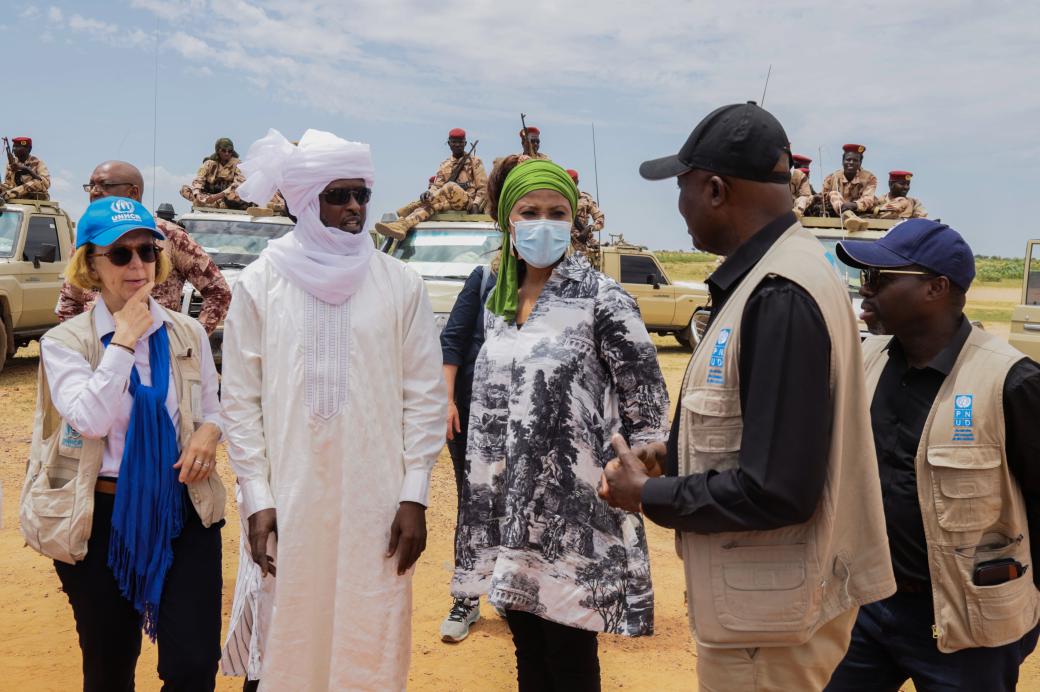
More malaria supplies and services are needed in Chad as the number of refugees from Sudan is expected to rise.
More malaria services needed
As more refugees arrive, UNHCR estimates that an additional 300,000 bed nets, 50,000 rapid diagnostic tests and 60,000 doses of malaria medicines will be needed in Chad.
Additional training for health workers to deliver malaria services and renovations to increase laboratory capacity are also necessary to provide these essential health services.
Malaria cases among refugees in Chad are expected to increase, as refugees from Sudan continue arriving.
Leaving no one behind
Sudan’s conflict could set back progress against malaria in the country and the region.
People caught in the crossfire in Sudan face attacks on health facilities and health supply shortages. Refugees across the region face life-threatening disruptions to their medical services. Beyond Chad, people fleeing to other countries like South Sudan and Egypt also need services for malaria, HIV and tuberculosis.
International humanitarian assistance committed to people in Sudan and the region must be increased and delivered swiftly. Refugee access to health services must continue.
“Thank goodness medicines are available and that my daughter is doing well,” Mahamat reflected.

 Locations
Locations

